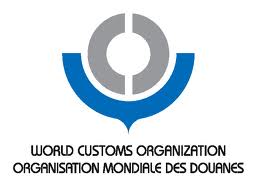Revised Kyoto Convention (RKC)
The revised Kyoto Convention (RKC) is the main trade facilitation Customs convention. It was developed by the World Customs Organization and entered into force on 3 February 2006. It is an update and revision of the International Convention on the Simplification and Harmonization of Customs Procedures (Kyoto Convention) adopted in 1973-1974. The RKC aims at facilitating trade by harmonizing and simplifying Customs procedures and practices. To this end the Convention provides standards and recommended practices for modern Customs procedures and techniques.
Countries wishing to become a contracting party to this international convention have to accept the Body and the General Annex to the RKC, which are binding. The General Annex of the RKC commits contracting parties to the following key principles:
- transparency and predictability of Customs actions,
- transparency and predictability of Customs actions,
- standardization and simplification of the goods declaration and supporting documents,
- simplified procedures for authorized persons,
- maximum use of information technology,
- minimum necessary Customs control to ensure compliance with regulations,
- use of risk management and audit-based controls,
- coordinated interventions with other border agencies, and
- partnership with the trade
The WCO Secretary General is the depositary of the Convention. Countries need to deposit their instrument of accession or ratification with the Secretary General of the Council. The Convention is administered by the Management Committee to the RKC whose members are contracting parties. Only contracting parties have a vote, but all others can attend as observers. The Management Committee has no enforcement or dispute-settlement function in the case where a contracting party does not comply with the standards contained in the RKC. Countries having acceded to this Convention have three years to implement the standards and five years to implement the transitional standards contained in the General Annex and in the specific annexes accepted.
The WCO promotes the implementation of the Convention through awareness raising, training and capacity-building initiatives. As of October 2013 there were 91 contracting parties. The text of the convention and additional information on the RKC can be found on its website. Note that the guidelines to the RKC are available for a fee.
Pages that cite the RKC:
Advance ruling
Appeal system and procedures
Authorized Traders
Border Agency Cooperation
Clearance
Consultation Cooperation
Coordinated Intervention
Cross-border management
Cross-border management and Customs
Customs Automation
Customs Broker
Customs Risk Management
De minimis
Declaration
Deferred Payment
Electronic Customs Duties and Taxes
Formal Trade Consultation
General measures
Guarantee and Security
International Transit
Joint border controls
NII Technology
Opening Hours
Post Clearance Audit
Pre-arrival processing
Process related measures
Publication
Release time
Single Window Implementation
Supply Chain Security
Supporting documents
Trade data Definitions

